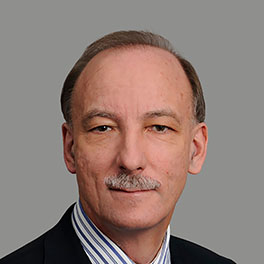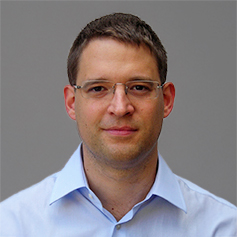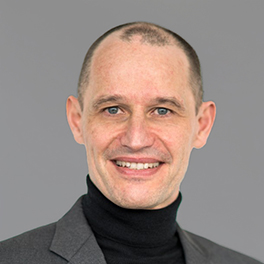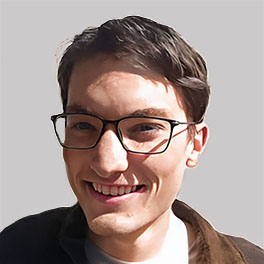GSPRE Symposium 2025
Join us for the First Symposium of the Graduate School of Precision Engineering (GSPRE) at the University of Bern on Monday, June 23, 2025, 14-18h, at sitem-insel, Bern. This event celebrates the official launch of GSPRE and brings together researchers, industry leaders, and students to discuss the future of precision engineering. We look forward to welcoming you!
Information
| Organized by | University of Bern, Graduate School of Precision Engineering |
|---|---|
| Date | Monday, June 23, 2025 |
| Time | 14-18 |
| Location | E0.211 Felix Frey Auditorium Freiburgstrasse 3 3010 Bern |
| Registration | Registration is closed. Please contact info.gspre@unibe.ch for further information. |
| Characteristics | open to registered participants, free of charge |
Registration
Registration is closed. Please contact info.gspre@unibe.ch for further information.
Speakers
Presentation of the Graduate School of Precision Engineering

Prof. Dr. Jürgen Burger
Prof. Dr. Jürgen Burger holds a PhD in Physics from the University of Erlangen. After positions at CSEM, Roche, and Johnson & Johnson, he was appointed titular professor at the University of Bern in 2014. He leads the Graduate School and the Master's program in Precision Engineering and focuses his research on smart implants and translational systems at the interface of medical and precision engineering.
Astronomical Instrumentation

Prof. Dr. Jonas Kühn: Developing astronomical instruments for direct imaging of exoplanets
Prof. Jonas G. Kühn holds a PhD in Engineering Sciences (Photonics) from EPFL, Lausanne. After a postdoctoral fellowship at Caltech-NASA/Jet Propulsion Laboratory, he served as a Senior Scientist at the University of Geneva. Since October 2022, he is Assistant Professor in Astronomical Instrumentation at the University of Bern, focusing on enhancing the sensitivity of high-contrast direct imaging instruments.
Talk overview
Over the last 15 years, it has been possible to image a few dozen exoplanets with direct so-called “high-contrast imaging”. Here we look behind the curtain, and expose the working principle and precision engineering work behind those instruments, currently deployed on the world’s largest ground-based telescopes. We also present the future developments in the field, with the advent of the new extremely large class of telescopes by the end of the decade, as well as upcoming space observatories specifically designed for direct imaging of exoplanets. In particular, we showcase the ongoing research efforts at the University of Bern, dedicated to advancing the underlying technologies.
EMPA

Dr. Lorenz Herrmann: New materials in biomedical and precision Engineering
Dr. Lorenz Herrmann received his PhD in solid state physics in 2010 from Université Pierre et Marie Curie in Paris and the University of Regensburg. He then joined ABB Corporate Research in Baden-Dättwil, where he worked as a scientist, group leader, and department head. Since 2022, he has been heading the "Advanced Materials and Surfaces" department at Empa and is a member of the Board of Directors.
Presentation outline
Empa, the Swiss Federal Institute of Material Science and Technology contributes to education and technology transfer in the canton of Bern and embraces collaboration with the newly founded graduate school for precision engineering at the University of Bern. Synergies, notably with our site in Thun, are widespread. Activities range from fundamental science to technology transfer including a large number of Spin-off companies. Concerning fundamental science, topics such as mechanical properties of architectured materials, novel synthesis methods of thin films and analysis method development based on transmission electron microscopy and atom probe tomography are of great interest. Technology transfer relates for instance to biomedical engineering of implants, micro- and additive manufacturing technologies and scientific instrumentation development. Also future growth areas such as space and sustainable engineering of materials have great potential to be exploited together based on the deep domain know how and complementary competences necessary to tackle the interdisciplinary challenges.
Metas

Dr. Hugo Lehmann: From the Meter Convention to Quantum Metrology
Dr. Lehmann earned his PhD in Nuclear Physics from the University of Fribourg. He is Chief Partnership and Technology Transfer Officer at METAS, focusing on strategic partnerships, innovation, and technology transfer.
What to expect
150 years ago, the meter convention has been signed, laying the basis for a globally harmonized unit system and thus enabling standardization as well as technological progress. Since then, the International System of Units has evolved and is today entirely based on fundamental natural constants.
In Switzerland, the Federal Institute of Metrology METAS is responsible for maintaining the SI System and ensures that industry and research can perform their measurements with the required accuracy and precision.
However, with the ongoing technological progress new challenges appear on the horizon. With the advent of the second quantum revolution, quantum sensors allow for measurements of unpreceded sensitivity and precision. Although metrology uses since decades quantum references, metrologists have also to explore these new quantum tools and prepare for serving the whole quantum industry with the needed characterization and validation capabilities.
Graduate School of Precision Engineering / Metas

Daniel Zahnd: Towards a More Precise Kilogram: Operating the Kibble Balance as a Joule Balance
Daniel Zahnd, PhD student in Precision Engineering at the University of Bern, will present his research on the realization of the kilogram using a Joule-Kibble balance. He holds a Master’s degree in Physics from the University of Bern, where he specialized in machine learning applications in solar physics.
Talk overwiew:
Since 2019, the definition of the mass unit is no longer based on a physical artifact but is instead linked to the Planck constant ℎ - a shift that requires extremely precise experimental realization.
Daniel’s work, conducted in close collaboration with the Federal Institute of Metrology (METAS), addresses the ongoing challenge that current implementations of the kilogram realization - including the watt balance, the x-ray crystal density method, and the joule balance - still show discrepancies. His research supports METAS in developing a joule balance mode for their existing watt balance, aiming to increase reliability and reduce measurement uncertainty.
